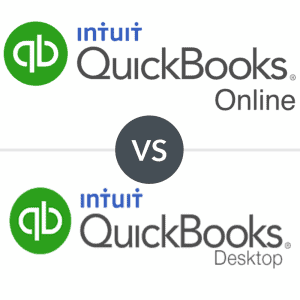If you're self-employed, you're responsible for filing and paying your taxes on time. Here's what you need to know about self-employment taxes before filing your next return.
Our content reflects the editorial opinions of our experts. While our site makes money through
referral partnerships, we only partner with companies that meet our standards for quality, as outlined in our independent
rating and scoring system.

Filing self-employment taxes can be intimidating, but the process is easier if you’re prepared. This guide explains the types of self-employment taxes, important tax due dates, and step-by-step instructions on how to file your self-employment taxes and make quarterly tax payments.
Own a small business? Be sure to check out our small business tax guide to learn more about small business tax credits, deductions, and how to get the most out of your next tax return.
What Are Self-Employment Taxes?
If you are employed, federal, state, Medicare, and Social Security taxes are calculated and automatically deducted from your paycheck. If you are self-employed, you are still responsible for paying taxes. However, your taxes won’t be automatically deducted every time a client pays you.
Instead, you will be required to file additional forms with your annual tax return and pay any taxes owed. In some cases, you may be required to estimate your tax liability and pay taxes every quarter.
Who Has To Pay Self-Employment Taxes?
There are several types of self-employed workers, including:
- Freelancers
- Independent contractors
- Sole proprietors
- Gig workers
If you’re self-employed, you may get paid in a variety of ways, such as through an online freelancing platform, through your website or payment platform, or via paper check. Regardless of how you are paid, income taxes will need to be paid on all revenue received, and in most cases, self-employment tax is also a requirement.
Types Of Self-Employment Taxes
There are several types of self-employment taxes you will be responsible for paying. Here are three types of taxes, what they’re used for, and how they’re calculated.
Self-Employment Tax
If you’re self-employed and meet one of the following conditions, you must pay self-employment tax:
- Your net earnings from self-employment were $400 or more OR
- You earned $108.28 from a church or church-controlled organization
These taxes are used for Medicare and Social Security, which provides retirement benefits, disability benefits, and survivor benefits.
The self-employment tax rate is 15.3% and is divided between the two as follows: 12.4% to Social Security and 2.9% to Medicare. The employer-equivalent portion can be deducted when calculating your adjusted gross income.
If you are required to pay self-employment taxes, you will need to include Schedule SE with Form 1040 when filing your tax return.
Federal Income Tax
Federal income taxes are used to fund federal programs, such as national defense, social programs, law enforcement, and interest on our national debt.
Federal income taxes are assessed based on your taxable income. Federal income taxes are broken up into seven brackets. The rate you pay is based on how much taxable income you have and your filing status. Rates range from 10% to 37%, with the highest earners receiving the highest rates.
Federal income taxes are calculated and reported on your federal return using IRS Form 1040. In some cases, a taxpayer may have overpaid taxes and is owed a refund. However, many self-employed individuals will find that they did not pay any taxes or did not pay enough and will owe the IRS.
State Income Tax
Most states also require you to pay income taxes, although a handful of states don’t have a state income tax. State tax funds are used for a variety of purposes, from education and healthcare to transportation and public assistance.
State income tax is paid to the state (or states) where you work — not necessarily where you live. State income tax rates vary, with some utilizing a flat rate and others using brackets similar to federal income taxes. A separate state return (or multiple returns, if you earned income in multiple states) is filed to calculate your state income tax liability.
Self-Employment Tax Due Dates
| Tax |
Due Date |
Tax Form Used |
| Self-Employment Income Tax |
April 15 |
Form 1040, Schedule C |
| Income Tax Extension |
October 15 |
Form 4868 |
If you’re self-employed, you are required to file an annual income tax return with the IRS. Tax returns are to be submitted to the IRS by April 15. If this date falls on a weekend or holiday, returns are due on the next business day.
If you submit your return early, you aren’t required to make a payment at this time. However, you will be required to submit payment for your tax liability by April 15 (or the following business day if April 15 falls on a weekend or holiday). If you e-file, your payment options include using a credit card, debit card, or eCheck. If you file by mail, you will need to send a check or money order — do not send cash.
It is possible to request a six-month extension for your annual tax return. An extension gives you additional time to file your return but payment is still due on April 15.
Failure to pay your taxes by the due date will result in interest and penalties, so it’s important to pay as quickly as you can.
If you find yourself in a situation where you cannot fully pay your tax liability, the IRS offers payment plans. You can learn more by calling the IRS or visiting the IRS website to sign up.
Estimated Quarterly Tax Due Dates
| Tax |
Due Date |
Tax Form Used |
| Q1 Taxes |
April 15 |
Form 1040-ES |
| Q2 Taxes |
June 15 |
Form 1040-ES |
| Q3 Taxes |
September 15 |
Form 1040-ES |
| Q4 Taxes |
January 15 (of the following year) |
Form 1040-ES |
While some self-employed individuals can simply file their annual returns, you may be expected to make estimated quarterly tax payments if you expect to owe the IRS $1,000 or more.
Quarterly taxes are due each quarter. You must complete and submit Form 1040-ES along with payment. If any of the due dates fall on a holiday or weekend, the due date will be the following business day.
How To Make Estimated Quarterly Tax Payments
If you have to make estimated quarterly tax payments, the whole process is relatively easy. Let’s walk through how to file and pay your quarterly self-employment taxes step-by-step.
Step 1: Calculate Your Estimated Quarterly Taxes
Your quarterly taxes are an estimate, but you want to make sure that this estimate is as accurate as possible to avoid underpaying. To calculate your estimated taxes, you will need to do the following:
- Calculate Estimated Annual Income: You can do this by looking at your returns and documents from the previous year. If you’re newly self-employed, you can review your records up to this point to estimate how much you will make for the year.
- Subtract Deductions: Don’t forget to calculate any tax deductions you plan to take. Subtracting these deductions from your estimated annual income gives you your adjusted gross income (AGI).
- Calculate Income Tax: Multiply your adjusted gross income by the tax rate found in the current IRS tax brackets. These change annually, so make sure you’re using the correct numbers. The amount you come up with from your calculations is the amount of income tax you owe.
- Let’s look at an example. You have calculated your adjusted gross income, and it is $9,000. You are a single filer. According to the IRS tax brackets, your income tax is 10% of your adjusted gross income (AGI). Therefore, you multiply 0.10 (10%) x $9,000 and get $900. That means you owe $900 in income taxes.
- Calculate Self-Employment Tax: If you made over $400, you are required to pay the self-employment tax. To do this, you first take your estimated annual income (not your AGI) and multiply this by 92.35%. This number is your taxable income. Then, your taxable income is multiplied by 15.3%. The final number is the amount of self-employment tax you need to pay.
- Let’s take another look at an example. Your estimated annual income is $12,000. We multiply this by 0.9235 (92.35%) to get $11,082. This is your taxable income. Multiply your taxable income ($11,082) by 0.153 (15.3%) to get $1,695.55. This is the total amount of your self-employment tax.
- Add Income Tax & Self-Employment Tax Take the two numbers calculated above and add them. Your income tax ($900) plus your self-employment tax ($1,695.55) equals $2,595.55. This is your estimated annual tax liability.
- Figure Out Quarterly Payments: Take the total estimated annual tax liability and divide this number by four. This will show you how much you need to pay each quarter. Taking from our example, $2,595.55 divided by four is $648.89. You will need to pay this amount by each due date.
Step 2: Save At Least 25% Of Each Paycheck
Financial experts recommend saving 25% to 30% of each paycheck to cover income and self-employment taxes. Set up a separate savings account and immediately deposit at least 25% of each paycheck as soon as you get paid.
Let’s look at the example from Step 1. We determined that your estimated annual income was $12,000 and that your total estimated annual taxes were $2,595.55. Let’s assume you save 25% from each paycheck. Over a year, this means that you saved $3,000 ($12,000 x 25%). Your estimated annual taxes are $2,595.55, meaning that you are saving plenty of money to cover your tax liabilities.
Step 3: Complete & Submit Form 1040-ES By The Due Date
Once it’s time to do your quarterly taxes, you need to complete IRS Form 1040-ES. This form has step-by-step instructions that make it easy for you to complete it accurately. You will need your estimated adjusted gross income and deductions to complete your form. Once complete, the form will need to be submitted to the IRS.
You will also submit your payment with your form. There are several ways to pay your quarterly taxes:
- Through the IRS website via credit card, debit card, or electric check
- By mail with check or money order
- Cash payment through an IRS retail partner
Addresses for submitting your 1040-ES and information about payment methods can be found in the instructions of Form 1040-ES.
How To File Self-Employment Taxes Step-By-Step
You can accurately complete and submit your federal tax return in no time by following these steps.
Step 1: Calculate Your Income
You can expect to receive Form 1099-MISC from any clients that paid you more than $600 in a year. Even if you don’t receive a 1099-MISC from a client, you are still required to report this income.
The IRS requires that 1099-MISC forms be sent out by January 31, so keep an eye on your mailbox (or your email) for the first few weeks of February. If you do not receive your 1099s by mid-February, contact your client.
Collect your 1099s and other income records (such as transactions posted through your accounting software). These will be required to calculate your income when filing your taxes.
Step 2: Calculate Your Deductions
Fortunately, you can lower your tax liability with deductions. Deductions are expenses that were paid to operate your business. There are several deductions you may be eligible for, including:
- Self-employment tax deduction
- Home office deduction
- Office supplies
- Mileage
These are just a few of the deductions that you can use to lower your tax liability. Check out our list of small business tax deductions to find more ways to save on your next tax return.
Step 3: Fill Out The Correct Tax Forms
Next, you need to fill out the appropriate self-employment tax forms, which may include:
- Form 1040: This is the US Individual Income Tax Return form. If you’ve filed for yourself in prior years, you’re already familiar with this form.
- Schedule C: Schedule C is used for reporting your income and expenses from your business. It is filed with your Form 1040.
- Schedule SE: Schedule SE is used for reporting self-employment tax. It is filed along with your Form 1040.
Step 4: Submit Your Tax Return To The IRS
There are two ways to fill out your tax forms:
- Online with tax filing software (e-filing)
- Manually downloading, printing, and submitting paper forms by mail to the IRS
E-filing is the fastest and easiest way to submit your return to the IRS. If you meet certain conditions, you may even be eligible to file your taxes online for free.
Step 5: Submit Your Tax Payment To The IRS
You may not be required to make an additional payment when your annual return is filed if you pay quarterly taxes. In rare instances, you may have even made an overpayment and will receive a tax refund from the IRS.
If you owe taxes, you will need to make your tax payment by April 15 (or the next business day if April 15 falls on a weekend or holiday). This applies even if you’ve requested an extension.
If you complete your return early, you aren’t required to submit your payment with your return. However, payment must be submitted by the due date.
You can pay your tax bill online by credit card, debit card, or eCheck. You can submit a check or money by mail, or you can make a cash payment through a retail partner.
Additional Self-Employment Tax Tips For Easier Filing
You should have a better understanding of what to expect when filing your self-employment taxes. But here are a few additional tips to help simplify the process.
Track Self-Employment Income & Expenses
Avoid scrambling to pull up invoices and receipts by tracking income and expenses throughout the year. The easiest way to track your income and expenses is with accounting software.
Accounting software offers many time-saving features, such as live bank feeds, automatic expense categorization, and receipt scanning. You may also have access to additional self-employment tools, such as invoicing, estimates, project management, and time tracking.
Keep Records & Receipts
Hold onto records and receipts that are used to calculate your income and deductions, such as client invoices, a mileage book, and expense receipts.
You can keep your records organized by:
- Filing hard copies in a filing cabinet
- Scanning & uploading records to cloud-based storage
- Scanning receipts with your accounting software
Hire An Accountant
If you’re filing self-employment taxes for the first time, consider hiring an accountant.
An accountant can find deductions that you may overlook, resulting in a lower tax liability. An accountant can also make sure all forms are completed and submitted correctly. This helps avoid potential errors that could result in paying additional taxes, interest, and penalties.
If you decide to hire an accountant, make sure to have your records and documentation to save time (and money).
The Bottom Line On Filing Self-Employment Taxes
With planning and preparation throughout the year, filing your self-employment taxes should be a breeze. Don’t forget to take advantage of the many accounting and tax software options out there to help you, or turn to a professional accountant to ensure your forms are accurate and submitted on time. You can also check out our guide to filing taxes for the first time for additional tax tips.











